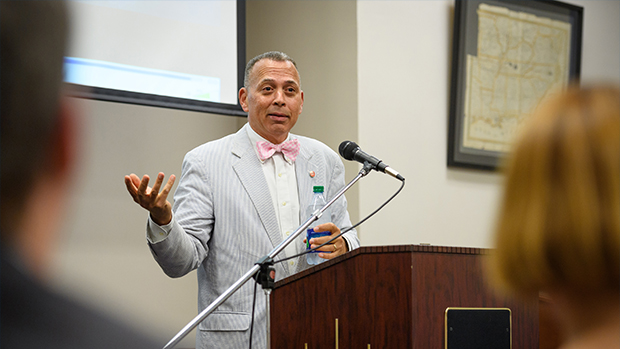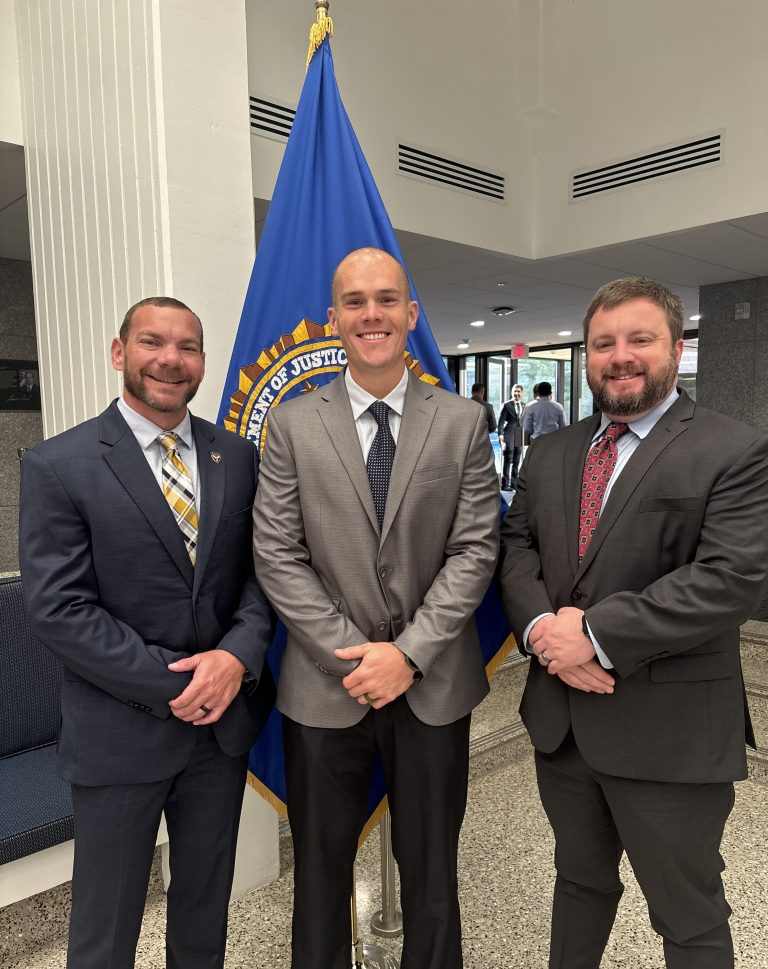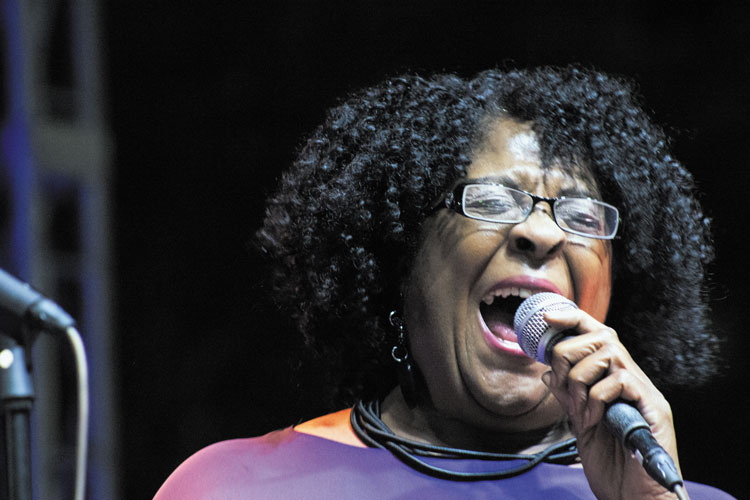
UM professor and author plans to use fellowship to write a book examining the Delta
Walking your dog can be a routine event, or it could be the exact time someone calls your cellphone from a prestigious university sharing the exciting news that you’ve been named a 2021 fellow at the Harvard Radcliffe Institute.
W. Ralph Eubanks, who received word he is the Carl and Lily Pforzheimer Foundation Fellow while walking his dog on the streets of Washington, D.C., joins an extraordinary group of artists, scientists, scholars and practitioners who will learn from and inspire one another in Cambridge, Mass., this fall.
Eubanks, visiting professor of English and Southern studies and writer-in-residence at the Center for the Study of Southern Culture at the University of Mississippi, will draw from personal history, archival research, blues culture and face-to-face interviews to draft a book revealing the American story at the heart of the Mississippi Delta.
“I hope my project will tell the region’s history and explore why many residents of the famous Southern alluvial plain persist in trying to transform a place that has been deemed broken and beyond repair,” Eubanks said.
“I also hope to explore a larger question: As economic disparity in this country grows, have the forces that made the Delta the South writ small now seeped into the rest of the country, rendering an entire nation the Delta writ large?”
Harvard Radcliffe Institute fellows have a shared ambition to take their creative, far-reaching and bold projects and make this changed world a better place, and Eubanks will be able to pursue his individual project in a community dedicated to exploration and inquiry.
Eubanks learned about the fellowship while reviewing Edward Ball’s Life of a Klansman: A Family History in White Supremacy for the Wall Street Journal.
“I always read the acknowledgments and realized how much Ball’s project was like what I wanted to do: a personal story about a bigger topic,” he said. “I have been playing around with a book on the Delta for quite some time and this seemed like a way to get some focused research done.”
Eubanks brings a great deal of energy and insight to classrooms, programs and planning at the Center for the Study of Southern Culture, said Katie McKee, the center’s director.
“At this crucial moment in national and regional history, professor Eubanks has the opportunity to turn his keen eye to a new project that continues his focus on Mississippi and draws the eyes of the nation to the key role of ‘the South’ in the American story,” McKee said. “We congratulate him on this genuinely impressive honor.”
Lee Cohen, dean of the College of Liberal Arts, echoed McKee’s sentiments.
“Professor Eubanks is a world-class scholar and writer, and we are very lucky to have him on our campus,” Cohen said. “The Radcliffe Institute fellowship is a well-deserved honor, and I know he will bring his explorations there back to campus to enrich and broaden our perspectives, as he always does.”
The acceptance rate for the class of fellows, which represents nine countries, was 2.4 percent, from 1,383 applications. Harvard Radcliffe Institute is a unique space within Harvard – a school dedicated to creating and sharing transformative ideas across all disciplines.
Each year, the institute hosts leading scholars, scientists, and artists from around the world in its renowned residential fellowship program. Radcliffe fosters innovative research collaborations and offers hundreds of public lectures, exhibitions, performances, conferences and other events annually.
Eubanks also knows two of the other fellows, Anne Whiston Spirn and Ladee Hubbard.
“Anne and I worked together when I was at the Library of Congress on her book Daring to Look: Dorothea Lange’s Photographs and Reports from the Field,'” Eubanks said. “I have only met Ladee Hubbard once, and it was at a signing at Square Books.
“I love her debut novel, The Talented Ribkins. Now I have to read her latest, The Rib King. She is from New Orleans, so it will be nice to have a fellow Southerner around.”
Eubanks is the author of A Place Like Mississippi: A Journey Through a Real and Imagined Literary Landscape (Timber Press, 2021). He is also author of two other works of nonfiction: Ever Is a Long Time: A Journey into Mississippi’s Dark Past (Basic Books, 2003) and The House at the End of the Road: The Story of Three Generations of an Interracial Family in the American South (HarperCollins, 2009).
By Rebecca Lauck Cleary




